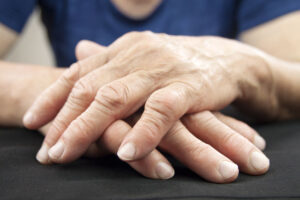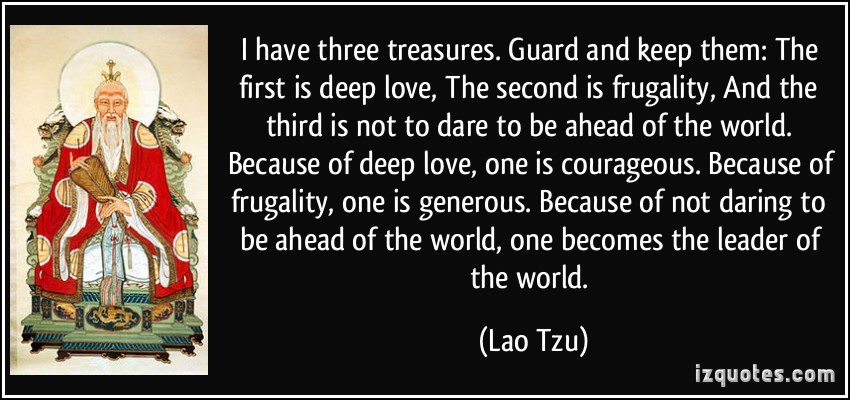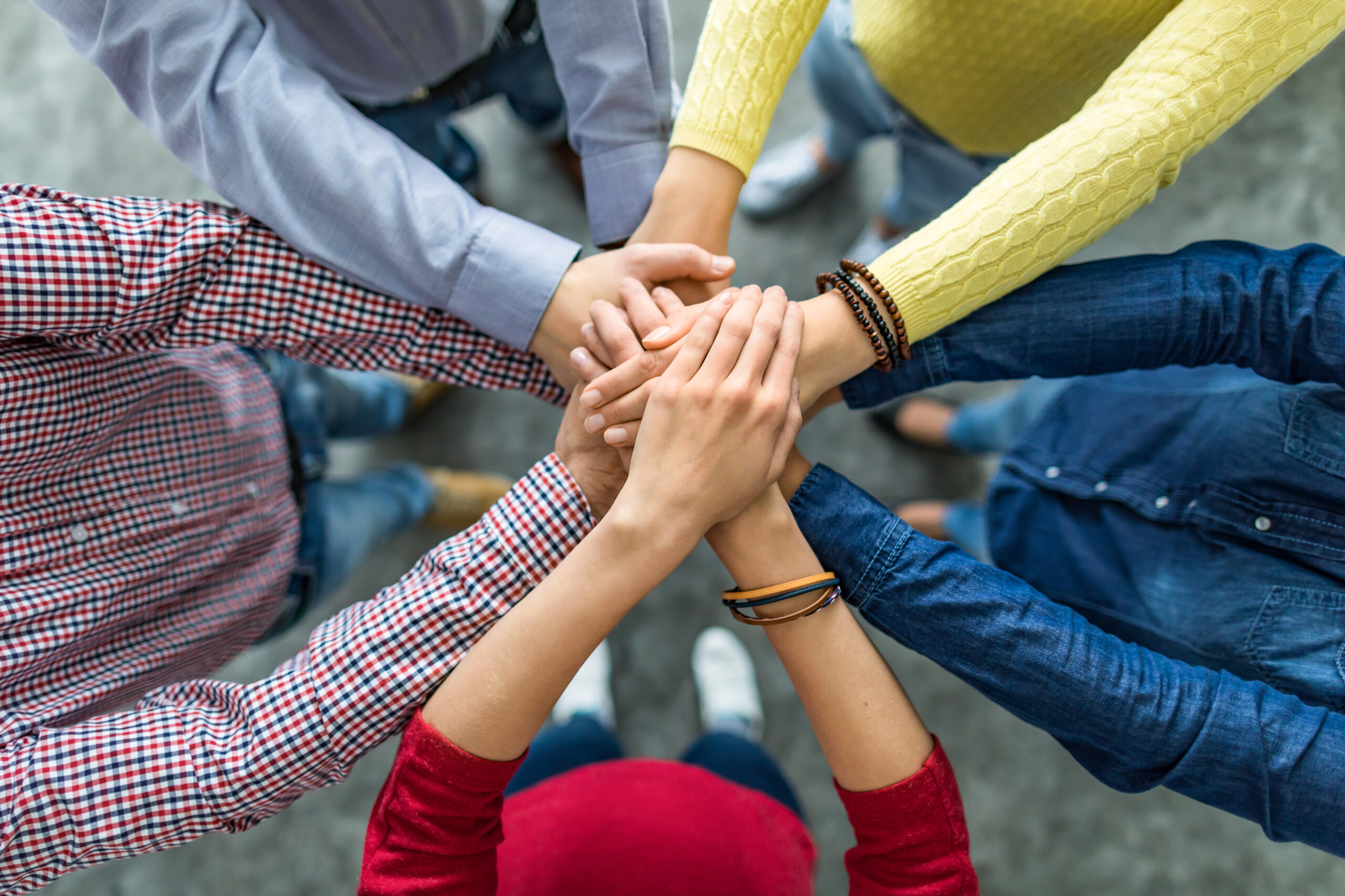“The greater the suffering, the greater God’s love is bestowed onto you.” Padre Pio

People have been increasingly distancing themselves from each other, even before this horrific pandemic hit. Years ago, in an interview with Self magazine, I was asked what I thought the number one contributor was to our poor health. My answer then was the same as it is now—a lack of intimacy. We’re losing the quality and ability to relate, not just to each other, but to our environment and Nature. For example, people go for walks, but instead of quietly connecting with nature, many are focused on their phones. People at my gym walk around with earbuds in and don’t make eye contact with each other. We are lonely, and most of us don’t even know it. With the sudden onset of COVID-19, we’ve isolated even more. Meanwhile, the opportunity to be present and in tune with our surroundings and each other exists every day. Even if we are physically distant, the importance our deep presence can make even the briefest or seemingly small encounters more lasting and meaningful.
Recently, I’ve thought a lot about what it might be like to pass away alone while on a medical ventilator, without the comfort of being surrounded by family and friends. This reflection creates deep sadness and pain, but then I draw inward, to become more intimate and closer to God (the God within we commune with in silence), and from that relationship comes the desire to do all I can to love and serve and to bring awareness and insight to others that inspires them to live healthier lives. Through my own intimate relationship with God and nature, I have witnessed the miraculous healing capability of God’s humble pharmacy. The healing plants reflect God’s love and provide all we need to sustain health and wellbeing (Psalm 104:14-15).

As a result of the COVID-19 pandemic and the policies imposed upon us, many people are experiencing negative emotional, social, cognitive, and physiological effects. The United States is now the country most affected by the virus, surpassing 450,000 cases according to the Johns Hopkins University & Medicine Coronavirus Resource Center.[1]
Although everyone has been affected, it is the poor and disadvantaged that are suffering the most.[2] In this unprecedented time, fear of illness, death, and uncertainty regarding the future are significant psychological stressors. According to a recent Kaiser Family Foundation poll, more than half of Americans reported that worry or stress related to the outbreak has led to at least one negative mental health effect.[3] In addition, social isolation resulting from loss of structured educational and work activities threatens to worsen public mental health.[4] Some patients recovering from COVID-19 appear to be facing an aftermath health condition of coping with the disease’s mental health ramifications. This is particularly true for the sickest of the sick, who required time in ICU and intubation. According to studies, these patients may be experiencing ‘post-intensive care syndrome’ that manifests as a combination of physical, cognitive, and mental health impairments.[5]

Courtesy of USA Today
Studies of past respiratory viral pandemics indicate that neuropsychiatric symptoms arise during and after acute viral infections. In particular, reports from influenza pandemics in the 18th and 19th centuries suggest a marked increase in insomnia, anxiety, depression, mania, psychosis, suicide, and delirium.[6] In the current pandemic, although the primary focus has been on deaths directly caused by the virus, a significantly higher number of deaths observed in Scotland, the Netherlands, and New York appear to be from causes other than COVID-19.[7] The sobering truth is that social distancing policies adopted around the world are harming people in very real ways. “Economic harm” is a euphemism, because this harm reaches far beyond mere finances, it harms people. [8] A report recently released from the Well Being Trust predicts that this pandemic could lead to 75,000 additional “deaths of despair” from drug and alcohol misuse and suicide as a result of unemployment, social isolation, and fears about the virus.[9]
As the systems that people depend on are increasingly strained by the COVID-19 outbreak, the public health impacts are manifesting in different ways beyond simple measures of morbidity and mortality for elderly populations. The reality is that you can isolate older people for a month or two, but keeping them apart from their children and grandchildren indefinitely can create extreme loneliness. Or consider the person who is the sole caregiver of an elder or who is caring for someone suffering from dementia. These people have been cut off from basic human contact, and the loneliness is devastating. For most of us, to exist in exile apart from those we love, is not truly living.[10]
Before social distancing, family or neighbors could visit and provide loving support for the elderly or those suffering from illness. Personally, I would take the risk of dying from COVID-19 than risk never again seeing the person I loved. And although a family member or friend could potentially infect an older person with the virus, I am much more concerned with the negative impact on their emotional and spiritual health caused by the absence of loved ones.
It is vitally important that we help each other to manage our mental, cognitive, physical, and spiritual challenges. Those who already struggle with anxiety and depressive disorders frequently have intense, excessive, and persistent worry and fear about everyday situations. COVID-19 undeniably adds to the ‘typical’ levels of stress and worry. Prolonged fear and worry can diminish overall health and wellbeing and increases the risk of many diseases. We need to help minimize this devastation by getting people connected, getting them working, provide them mental health support, give them facts, offer a vision, and get people the care they need. Fear and uncertainty can only be conquered by love and courage.
The Importance of Gratitude
Consider beginning your day with prayer and gratitude. A study published in the journal Psychotherapy Research found that writing a gratitude letter improves our outlook and emotional well-being.[11] Research shows that daily experiences of gratitude, joy, and love, along with curiosity, can put the average person on a trajectory of growth, success, and positive social connection. It can also prevent those who are suffering from following a downward spiral. Several research studies have found that expressing gratitude to others appears to be a crucial step in deriving health benefits, and these benefits may not be limited to the unemotionally healthy.[12],[13],[14],[15],[16]
There’s a beautiful practice in the Jewish tradition that we can all adopt to help us focus on gratitude. Traditionally, Jews begin each day (often while still in bed), with Modeh Ani, a short prayer that speaks of sleeping as a minor type of death in which the soul leaves the body to spend the night with God. The prayer thanks God for returning the soul to the body, enabling the individual to live another day.[17]

I continually express gratitude and extend my appreciation to the healing plant world. Along with practicing gratitude, I’m happiest when serving others. Audrey Hepburn said, “Let attractive lips speak kind words to others, let lovely eyes see the good in others; and as you grow older, you will discover that you have two hands; one for helping yourself, and the other for helping others.”
Spiritual Care and Mederi Care
Mederi Care is a system of unity at every level, and it begins with the trilogy of Health: Spirit, Mind and Body. Spirituality is central to all components of Mederi Care, and spirituality, as well as theology, is a lifelong developmental task. Regardless of our own interpretation or recognition of that pursuit, spirituality and religion play an important role in every culture. Spirituality is a vital element connected to seeking meaning, purpose, and transcendence in life.
I believe that spiritual care, which is embedded in Mederi Care, should be introduced into the general health care system. Many people come to realize that with their life-threatening illness comes an opportunity for spiritual growth. Having access to spirituality through meaning, purpose, connections with others, or connections with a higher power will give them the spiritual resources necessary to adjust to adverse circumstances.[18] The connection of Mederi Care to spirituality or theology is not a new concept, but is rooted in most healing traditions. For example, Traditional Chinese Medicine is based on the ancient Chinese religion of Taoism.

The administration of spiritual care does not need to be reserved for a priest, minister, rabbi, or Native American healer. Health practitioners from every tradition, including those who have no religious affiliation, can infuse medicine with love, compassion, and kindness. For that matter, we all can infuse our lives with love, compassion, and kindness directed toward ourselves, to our families and friends, to our communities, and to the world.
We need to understand more fully the constructs of spiritual well-being, transcendence, hope, meaning, and dignity, and to correlate them with variables and outcomes such as quality of life, pain control, coping with loss, and acceptance.[19] The sick and dying should be touched, anointed, and prayed with and for, regardless of what faith, or no faith at all. This can be conducted in silence.
One of the most important medical developments of the Middle Ages was the introduction of medieval monastic health care and hospitals, which was a result of the work of monks with access to historical documents containing medical information and with a calling to serve God by helping people.[20] An important aspect of the monastery plan was the inclusion of the medicinal herb garden, which furnished the physician-monk with the herbal medicines needed for his cures.[21]
Underlying the scholastic and empirical basis of herb use, monastic medicine maintained a spiritual base for its practice. Monks believed that the divine origin of herbs remained a primary reason for their healing powers: “A dependence on the power of herbs . . . was never without reference to their Creator [God].[22]
The monastic medical system represented a specific period in the history of medicine during which natural physical medicine, and supernatural mystical medicine, along with the principles of spiritual healing not only uniquely coexisted, but were synchronized and unified.
Mederi Care is Unitive Medicine, whereby all components are united as ‘one,’ and it is through this ‘oneness’ we heal.
The Therapeutic Response of Compassion
Each sick person or frail elder calls for a therapeutic response of compassion, which rises above fear and ego. Spirituality can and should be the therapeutic window of a universe that awaits, demonstrated in intensity of glances, cuddling with outstretched hands, and respect in the dignity that is recognized.[23]
We all must focus and continue to live, love, and care for one another. We must work in our own way to improve the world, enjoy the many blessings that each day brings, and deepen our relationships. Our days are limited. One day we too will die. What does this trial teach us? What does social distancing, seeing our empty grocery shelves, the economic hardship do to each and every one of us and how does this affect us spiritually? Will this pandemic cause more detachment, or will it bring attachment? Can we become enlightened through COVID-19 and be brought closer together, and enter more fully into the great mystery we call GOD—the universal ONE—PURE LOVE?

Before enlightenment, all fear, judgment, opinions, and beliefs are stated in the second person: “you are,” “they are”. But when we become enlightened we are joined together as ONE, and state in the first person “we are.”[24] Keep in the mind the word illness begins with “I” while wellness begins with ‘we.” When we are “we” and connected to each other, the earth Mother Nature) and the Universe, we are “one.”
Pope Francis recently said this regarding the importance of us all to be prayer. “Men and women that pray know that hope is stronger than discouragement. They believe that love is more powerful than death and that one day it will certainly triumph, even if in times and ways that we don’t know. Prayer illumines you: it illumines your soul, it illumines your heart and it illumines your face, even in the darkest times, even in times of great sorrow.” [25]
My prayer is that we join together in dissolving the barriers that separate us, and that we find ways to come together even when it is necessary to take precautions against the virus. Because together, we heal.
References
[1] https://coronavirus.jhu.edu/map.html
[2] Cumming C, Wood L, Davies A. People experiencing homelessness urgently need to be recognized as a high-risk group for COVID-19 [published online ahead of print, 2020 May 7]. Health Promot J Austr. 2020;10.1002/hpja.355. doi:10.1002/hpja.355
[3] New WBT & Robert Graham Center Analysis: The COVID Pandemic Could Lead to 75,000 Additional Deaths from Alcohol and Drug Misuse and Suicide, https://wellbeingtrust.org/news/new-wbt-robert-graham-center-analysis-the-covid-pandemic-could-lead-to-75000-additional-deaths-from-alcohol-and-drug-misuse-and-suicide/, full paper, https://wellbeingtrust.org/wp-content/uploads/2020/05/WBT_Deaths-of-Despair_COVID-19-FINAL-FINAL.pdf, May 11, 2020
[4] P.M. de M. Carvalho, M.M. Moreira, M.N.A. de Oliveira, J.M.M. Landim, M.L.R. Neto, The psychiatric impact of the novel coronavirus outbreak, Psychiatry Res., 286 (2020), Article 112902, 10.1016/j.psychres.2020.112902
[5] Rogers J, et al “Psychiatric and neuropsychiatric presentations associated with severe coronavirus infections: a systematic review and meta-analysis with comparison to the COVID-19 pandemic” Lancet Psychiatry 2020; DOI: 10.1016/ S2215-0366(20)30203-0.
[6] A. Troyer, Jordan N. Kohn and Suzi Hong, Brain, Behavior, and Immunity, https://doi.org/10.1016/j.bbi.2020.04.027
[7] Basu, M. Nearly 30% of excess deaths in New York state not related to coronavirus pandemic, says study, https://meaww.com/large-excess-deaths-new-york-30-percent-coronavirus-pandemic-study-not-related, retrieved May 6, 2020
[8] Mandrola, JM, MD, We Can’t Ignore the Harms of Social Distancing, May 01, 2020, https://www.medscape.com/viewarticle/929765_print
[9] Kirzinger, Ashley, et. al., KFF Health Tracking Poll – Late April 2020: Coronavirus, Social Distancing, and Contact Tracing, Published: Apr 24, 2020, https://www.kff.org/report-section/kff-health-tracking-poll-late-april-2020-economic-and-mental-health-impacts-of-coronavirus/
[10] Patel SS, Clark-Ginsberg A. Incorporating issues of Elderly Loneliness into the COVID-19 Public Health Response [published online ahead of print, 2020 May 7]. Disaster Med Public Health Prep. 2020;1‐3. doi:10.1017/dmp.2020.145
[11] Wong YJ, Owen J, Gabana NT, et al. Does gratitude writing improve the mental health of psychotherapy clients? Evidence from a randomized controlled trial. Psychother Res. 2018;28(2):192‐202. doi:10.1080/10503307.2016.1169332
[12] O’Connell BH, O’Shea D, Gallagher S. Feeling Thanks and Saying Thanks: A Randomized Controlled Trial Examining If and How Socially Oriented Gratitude Journals Work. J Clin Psychol. 2017;73(10):1280‐1300. doi:10.1002/jclp.22469
[13] McKee LG, Algoe SB, Faro AL, O’Leary JL, O’Neal CW. Picture This! Bringing joy into Focus and Developing Healthy Habits of Mind: Rationale, design, and implementation of a randomized control trial for young adults. Contemp Clin Trials Commun. 2019;15:100391. Published 2019 Jun 29. doi:10.1016/j.conctc.2019.100391
[14] Fredrickson B.L., Cohn M.A., Coffey K.A., Pek J., Finkel S.M. Open hearts build lives: positive emotions, induced through loving-kindness meditation, build consequential personal resources. J. Personal. Soc. Psychol. 2008;95:1045–1062
[15] Kok B.E., Coffey K.A., Cohn M.A., Catalino L.I., Vacharkulksemsuk T., Algoe S.B., Brantley M., Fredrickson B.L. How positive emotions build physical health: perceived positive social connections account for the upward spiral between positive emotions and vagal tone. Psychol. Sci. 2013;24:1123–1132.
[16] Stellar J.E., John-Henderson N., Anderson C.L., Gordon A.M., McNeil G.D., Keltner D. Positive affect and markers of inflammation: discrete positive emotions predict lower levels of inflammatory cytokines. Emotion. 2015;15:129–133.
[17] https://www.myjewishlearning.com/article/morning-blessings/, retrieved 5/15/2020
[18] Delgado-Guay MO. Spirituality and religiosity in supportive and palliative care. Curr Opin Support Palliat Care. 2014;8(3):308‐313. doi:10.1097/SPC.0000000000000079
[19] Chochinov HM, Cann BJ. Interventions to enhance the spiritual aspects of dying. J Palliat Med. 2005;8 Suppl 1:S103‐S115. doi:10.1089/jpm.2005.8.s-103
[20] Hammond, E.A. (1958). Physicians in Medieval Religious Houses. Bulletin of the History of Medicine 32: 105
[21] Horn, W., Born, E. (1979). The Plan of St. Gall: A Study of the Architecture & Economy of, & Life in a Paradigmatic Carolingian Monastery, 3 vols. (Berkeley: University of California Press), pp. 1:20.
[22] Amundsen, D.W. (1996). Medicine, Society, and Faith in the Ancient and Medieval Worlds (Baltimore: Johns Hopkins University Press), pp. 193.
[23] Costa Gomes C, Borges Neto RDS. Bioética y espiritualidad al final de la vida [Bioethics and spirituality at the end of life]. Cuad Bioet. 2020;31(101):13‐18.
[24] Rohr, Richard, everything Belongs, The Gift of Contemplative Prayer, Crossroad Book (2003), pg. 176
[25] https://docs.google.com/document/d/1H4Jduziy4EI4djOVqtPjaArI-OuLx2jlgdpmCBVPZ1Q/edit?ts=5ec57000, retrieved 5/20/20


Nice Brother Donnie … Would like to discuss …
Thanks Donnie. as always good stuff.
Incredible with words… like they have been infused with his jazz harmony.
Thanks Donnie, you have set us on a path of wellness that we have not departed from for many years now. I still remember you mentioning how the very weeds we want to destroy hold healing virtue. That simple comment has altered our view of nutrition and healing. We agree that a healthy walk with God (expressed in the life of Jesus for us) is essential to life. We are still learning the walk of love and want to thank you for modeling it.